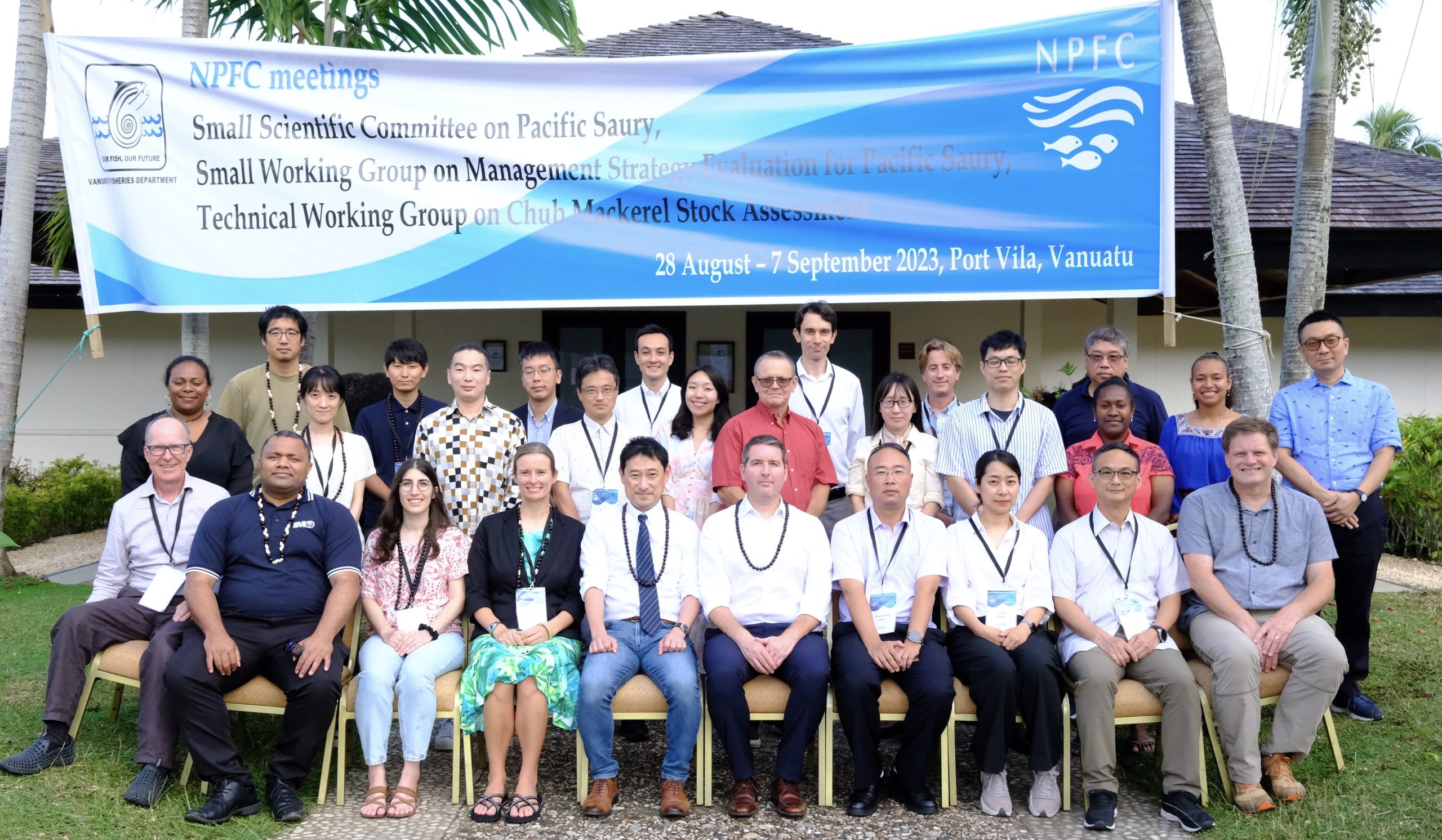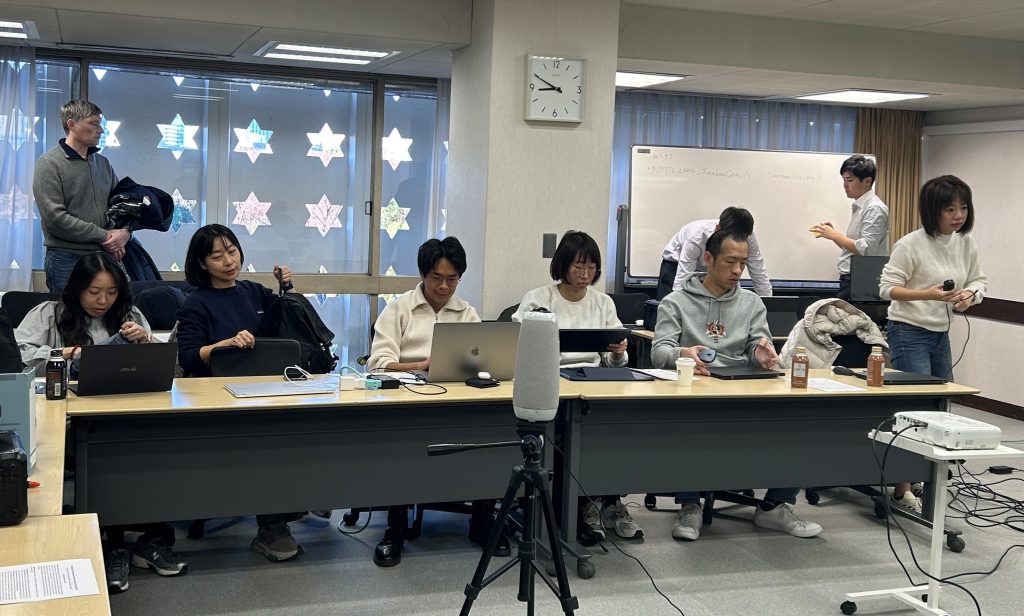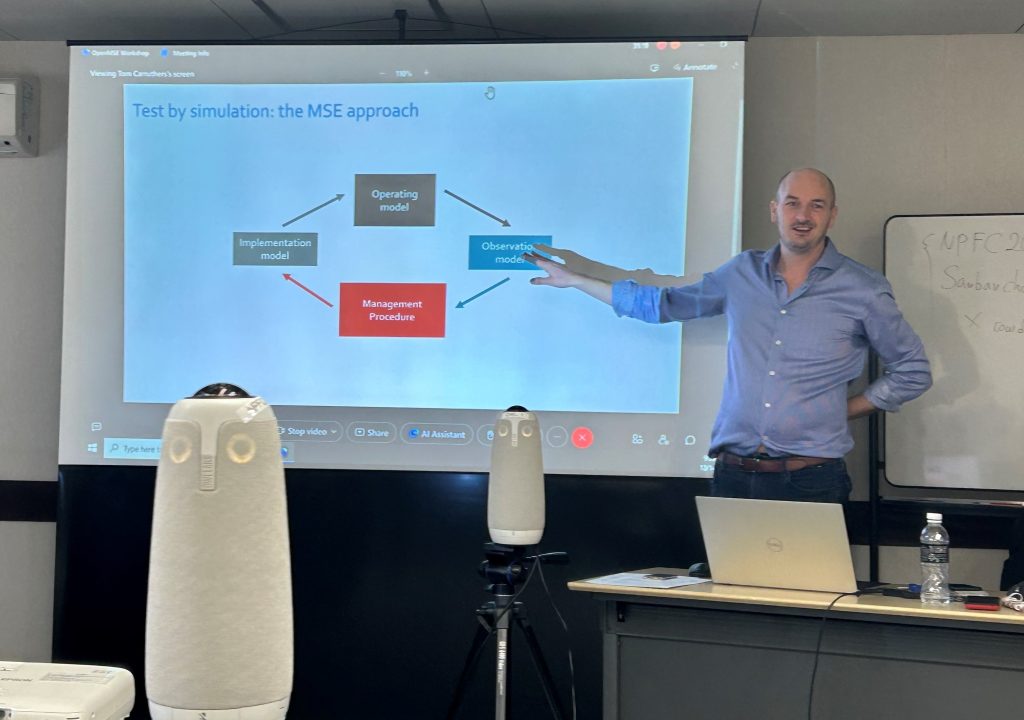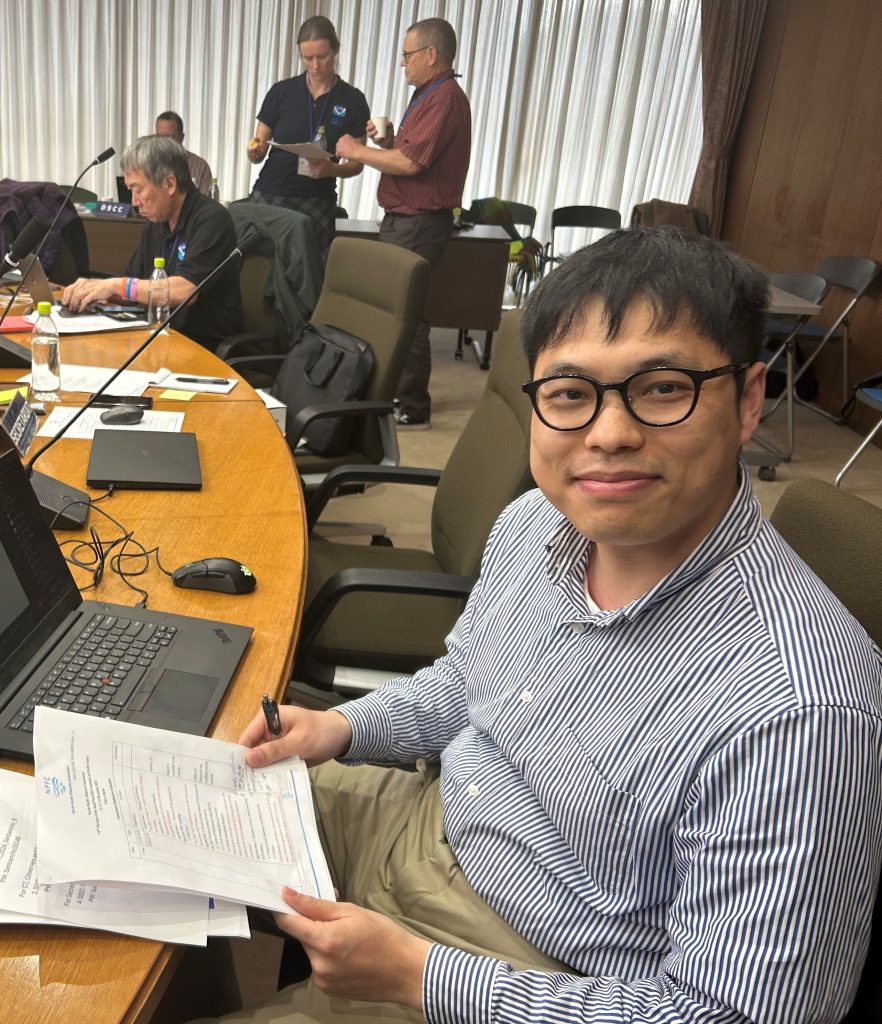February 12, 2025

The North Pacific Fisheries Commission (NPFC) is a relatively new Regional Fisheries Management Organization (RFMO) with the overarching objective of ensuring the long-term conservation and sustainable use of the fisheries resources in its Convention Area while protecting the marine ecosystems of the North Pacific Ocean.
Having participated in preparatory meetings before this RFMO was ratified in 2015 and chaired its Scientific Committee for the past five years, I have observed the NPFC’s Scientific Committee establish defensible processes for undertaking quantitative analyses, including stock assessments, and providing science-based advice to the Commission to achieve its overarching objective.
During the past decade, NPFC Members have collaborated on stock assessments of two priority species – Pacific saury (Cololabis saira) and chub mackerel (Scomber japonicus) – and have been studying other NPFC priority species. The NPFC adopted an interim harvest control rule (HCR) for Pacific saury in 2024 based on preliminary simulation testing, while a full management strategy evaluation (MSE) is developed for that species.
The NPFC’s Scientific Committee has been learning about and building capacity to develop MSE for its priority species since 2019, when its Biological Reference Point/Harvest Control Rule/Management Strategy Evaluation Workshop was convened to consider potential directions on the application of biological reference points (BRPs), HCRs, and MSE for NPFC’s priority species. During that workshop, one invited expert described how conducting an MSE can be a lengthy process. Still, the lessons learned from conducting it for one species can be transferred to others, making future MSE processes more efficient. Another invited expert underscored the importance of improving communication for more effective MSE processes. Participants also noted that consideration could be given to the role of climate variability when providing scientific advice because MSE is a robust tool to evaluate the resilience of HCRs to different climate scenarios.
In 2021, the NPFC established a Small Working Group on MSE for Pacific Saury (SWG MSE PS) as a joint subsidiary body that included participation from its Scientific Committee, Technical and Compliance Committee, and Commission (joint SC-TCC-COM SWG MSE PS). The overall purpose of the SWG MSE PS is to provide a forum for consultation and cooperation among scientists, managers, stakeholders, and observers, akin to the science-management dialogue groups in use at other RFMOs. The SWG MSE PS’ functions include developing and submitting recommendations to the Commission on a draft interim HCR, draft management objectives, key sources of uncertainty, and, if feasible, candidate management procedures (MPs), as well as facilitating communications among commissioners, scientists, managers, stakeholders, and observers.

In anticipation of future participation of the NPFC’s Scientific Committee in MSE processes for priority species, the Scientific Committee has been exploring options to build capacity to undertake the technical analyses that underpin MSE. Recently, the Scientific Committee and the NPFC Secretariat accepted the offer from The Ocean Foundation and www.HarvestStrategies.org to organize an informal workshop on management strategy evaluation with the OpenMSE R package. The workshop side-event was led by Dr. Tom Carruthers and Dr. Adrian Hordyk of Blue Matter Science in December 2024 on the margins of the Scientific Committee’s ninth meeting. The first part of this workshop focused on introducing the philosophy, concepts, and terminology of MSE. The second part of the workshop was a demonstration (coding) of the technical components of MSE using the OpenMSE R package, including operating model specification, MP development and tuning, running the closed-loop calculations of an MSE, calculating performance metrics, presenting MSE performance outcomes and trade-offs, and developing exceptional circumstances protocols. Over 20 people from the NPFC’s Scientific Committee or Secretariat registered for this hybrid workshop.

Given the NPFC’s Resolution on Climate Change, which tasks its Scientific Committee with integrating analyses of climate change relevant to NPFC fisheries into its work plan, Dr. Carruthers was also invited to present tools for incorporating climate change considerations into scientific advice. His presentation suggested that it is unnecessary to know the exact type or level of forecasted impact to identify an MP that outperforms other MPs in terms of climate robustness. He also presented how the climate robustness of MPs can vary depending on their specification.
Drawing on NPFC Scientific Committee funds for capacity building, Dr. Libin Dai of China will spend a week in early 2025 working with those at Blue Matter Science in part to develop a stock assessment model for neon flying squid, learn more about applications of the openMSE R package for NPFC’s priority species, and learn about integrating climate information into a stock assessment framework and MSE for neon flying squid.

I am heartened to know that NPFC Members and observers recognize the importance and value of MSE in informing fisheries of priority species management, especially when considering MPs that are resilient to the impacts of climate change. This is also related to two key recommendations (3.2.2 and 4.5.4) of the 2022 NPFC performance review. The NPFC is actively building knowledge and capacity within its scientific and management communities to understand and undertake the analyses needed to inform MSE processes. To this end, The Pew Charitable Trusts and The Ocean Foundation are convening a side event during the ninth NPFC Commission meeting that will explore further opportunities for the NPFC to build its capacity. I look forward to a day in the near future when scientists can communicate and work effectively with managers and stakeholders to implement NPFC MPs that can meet multiple objectives of sustainable use.
Dr. Janelle Curtis is a Research Scientist at Fisheries and Oceans Canada. She has been chairing the NPFC’s Scientific Committee since April 2019.